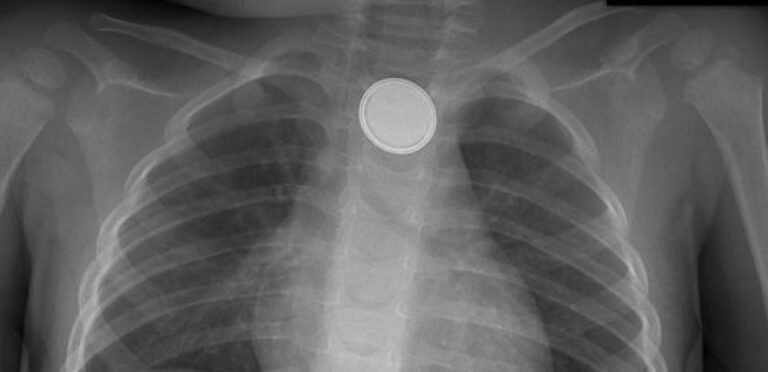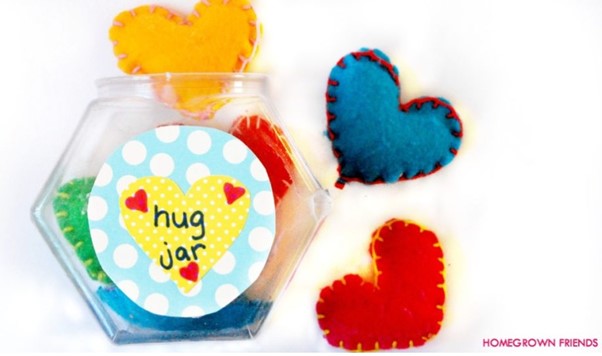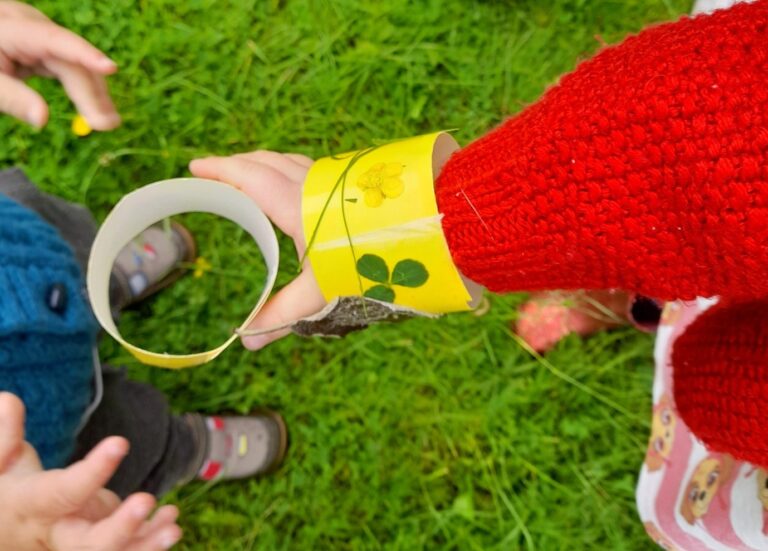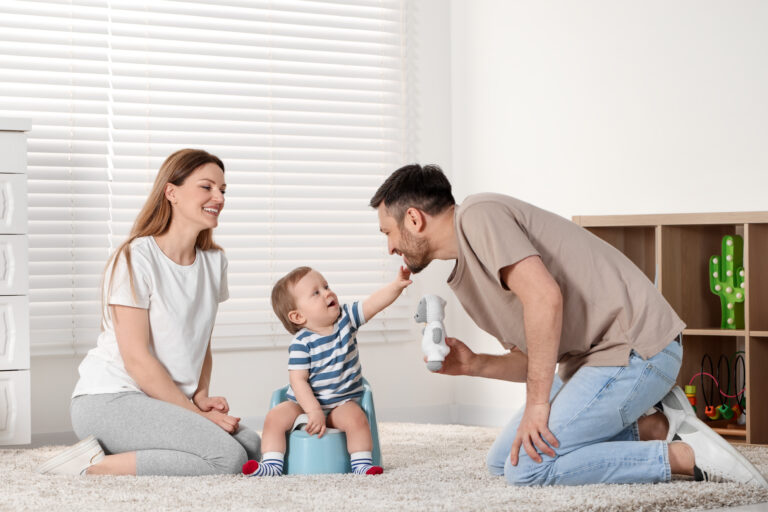The dangers of button batteries have hit the headlines again with the heartbreaking news of the death of two-year-old Harper-Lee Fanthorpe after she swallowed a button battery from a remote control.
Her mother has spoken to the media in an effort to warn other parents, saying she wasn’t aware of the dangers of button batteries.
In 2016, the BBC published a warning about the dangers of button batteries, after Great Ormond Street Hospital reported a dramatic increase in the number of children being treated with injuries from having swallowed a button battery.
Mother of two, Linda*, knows only too well the terror of having your child swallow a button battery – it happened to her son Ben when he was just two years old.
Linda spoke to us about her son’s experience, to help raise awareness of the dangers of button batteries, which many parents (and even some doctors) are not aware of, and to try and prevent it happening to more children.
The incident happened in August 2015.
“I was away from him for less than 30 seconds when I heard him cough”
Linda said: “We’d just moved home – Lucy was four and Ben was two. We were three days into our move and my husband went back to work. The house was still upside down, we were still sorting out boxes and getting the house organised.
“It was on this morning that my son came to me with something in his hand. He had hold of a button battery, (we think it may have fallen out of the bathroom scales). I took it off him and put it on the worktop in the kitchen. I didn’t realise how dangerous button batteries were.
“During this time my daughter shouted to me, she wanted me to help her in the bathroom and so I went to help her, I was less than 30 seconds and during this time I heard my son cough. I went to look at him and he seemed ok, then within seconds he started crying and writhing in pain and complaining of pain in his back. He was then sick and at this point I didn’t know what was happening with him.
“Still holding him, I went into the kitchen to get a cloth and noticed the battery wasn’t present. I then started worrying thinking that he’d swallowed this battery and it was going to leak inside him. I rang my husband straight away, who came home within 5 minutes. Having only just moved into the area, we didn’t have a registered GP and so we rang for an ambulance, all while Ben was crying in pain and vomiting.
“After 25 minutes the ambulance hadn’t arrived and so we rang back to find out where they were, unfortunately, they couldn’t help us as we had obviously not been placed as an emergency, after the frantic conversation to the emergency services and approximately 45 minutes later we decided to drive our son to the hospital as at this point he was starting to pass out.”
“It took ten hours before the battery was removed”
“On arrival at the A&E we were sent into the waiting room where we were given no urgent treatment.
“When our son was seen we were sent for an X-ray to see whether he had ingested this battery. It was after this that our nightmares came true.
“The X-ray showed the battery lodged in his oesophagus positioned adjacent to the heart.
“We were then moved over to the paediatric surgical ward, where we waited yet another 40 minutes to see a doctor. It was during this time that my husband had a chance to research the implications of button battery ingestion and it was then that we realised how serious this was and how important it was to remove the battery quickly.
“We asked the consultant about the implications of swallowing a button battery and he didn’t seem to understand how dangerous they were himself. He told us it was just like swallowing a penny and would be treated in the same way, however, due to Ben’s age the battery couldn’t be removed by this hospital and so he had to be transferred by ambulance (over a 1 hour trip) to Alder Hey Children’s hospital.
“Ben’s battery was eventually removed 10 hours after he had swallowed it.
“The terrifying issue with these batteries is once ingested, if they lodge in the oesophagus and aren’t removed within two hours, the alkali from the battery reacts with the saliva and this creates something similar to caustic soda (the stuff you unblock drains with). Which then begins to burn a hole into your oesophagus and then through anything that is near: arteries, blood vessels, organs.
“As you can imagine whilst waiting this number of hours we were fearing the worst for our precious boy.
“After they had managed to remove the battery, we were told there was severe burns to his oesophagus and whilst they had removed the item, we were told that there was still a chance that the burns could continue to burn through his oesophagus and so had to remain in hospital to be observed for any changes.
“After 9 days Ben had a special X-ray to show whether or not he had any narrowing of the oesophagus. Fortunately, it came back clear.
“Ben was so lucky as in general after the batteries have been in the system for this long, children usually need surgery on their oesophagus, even transplants and sometimes children have sadly died.
“We were given instructions on leaving the hospital that if he had any pain when eating or any problems at all with his oesophagus, to not wait around and to immediately go to A&E. For the first few months after Ben did struggle eating certain things, but this eventually stopped and a year on and he’s completely back to his old self.”
Making your home safe
Linda said since the incident they have removed all items with batteries out of the reach of their children.
She said: “We’ve removed any adult items which use these lithium batteries that are in reach of our children such as electric scales. Anything that takes this type of battery is now locked away and kept completely out of reach of our children.
“Also, be aware that these batteries are found in many children’s battery-operated toys so if you have them please ensure that the battery compartment is screwed in.”
Be aware of delayed symptoms
Linda added that you may not always realise immediately your child has swallowed a battery because they could seem fine.
She explained: “When this happened to Ben, his immediate symptoms were coughing, crying and writhing in pain, complaining of back pain and vomiting. However, a couple of hours before he had the battery removed, he was running around and playing in the hospital and you wouldn’t believe there was anything wrong with him.
“Please don’t think that just because they seem ok, that they are.
“Get your child straight to hospital even if you’re not sure they’ve swallowed one and insist on an X-ray.
“Speed is of the essence with button battery ingestion, the sooner your child is treated, the more chance you have to a full recovery.
“Don’t be fobbed off by any doctors due to their lack of awareness, you’re not being an overworried parent, this is a matter of life and death.”
*All names have been changed.
Key points for parents
- Button batteries are dangerous when swallowed (if they get stuck in the throat), or if they get stuck in their nose or ear.
- Lithium batteries are the most dangerous, but all button batteries have the potential to cause damage when swallowed, or when stuck in a child’s ear or nose.
- Button batteries can be found in a wide range of objects, including (but not exclusively):
- small remote controls
- car key fobs
- calculators
- thermometers
- hearing aids
- digital scales
- musical cards
- novelty toys
- watches
- flameless candles and nightlights.
- Batteries in children’s toys are covered by safety regulations and should be enclosed by a screw and secure. Check regularly to ensure battery enclosures are securely screwed in.
- Top tips to keep children safe from button batteries include:
- Keep products with batteries well out of reach if the battery compartment isn’t secured with a screw.
- Keep all spare batteries out of children’s reach and sight.
- Avoid toys from markets or temporary shops as they may not conform to safety regulations.
- Teach older children that button batteries are dangerous and not to play with them or give them to younger brothers and sisters.
- Remember that even used batteries can be dangerous, so recycle them safely.
Most importantly of all, if you think your child may have swallowed a button battery, do not wait for symptoms to appear.
Take them to A&E immediately, tell the doctor you think they have swallowed a button battery, do not let your child eat or drink, and don’t try to make them sick.
This article was first published on Family Corner in October 2016 and updated in June 2021.
Further information
Tips for keeping your child safe from button batteries – The Child Accident Prevention Trust
Learn the facts about button batteries
To read next…











